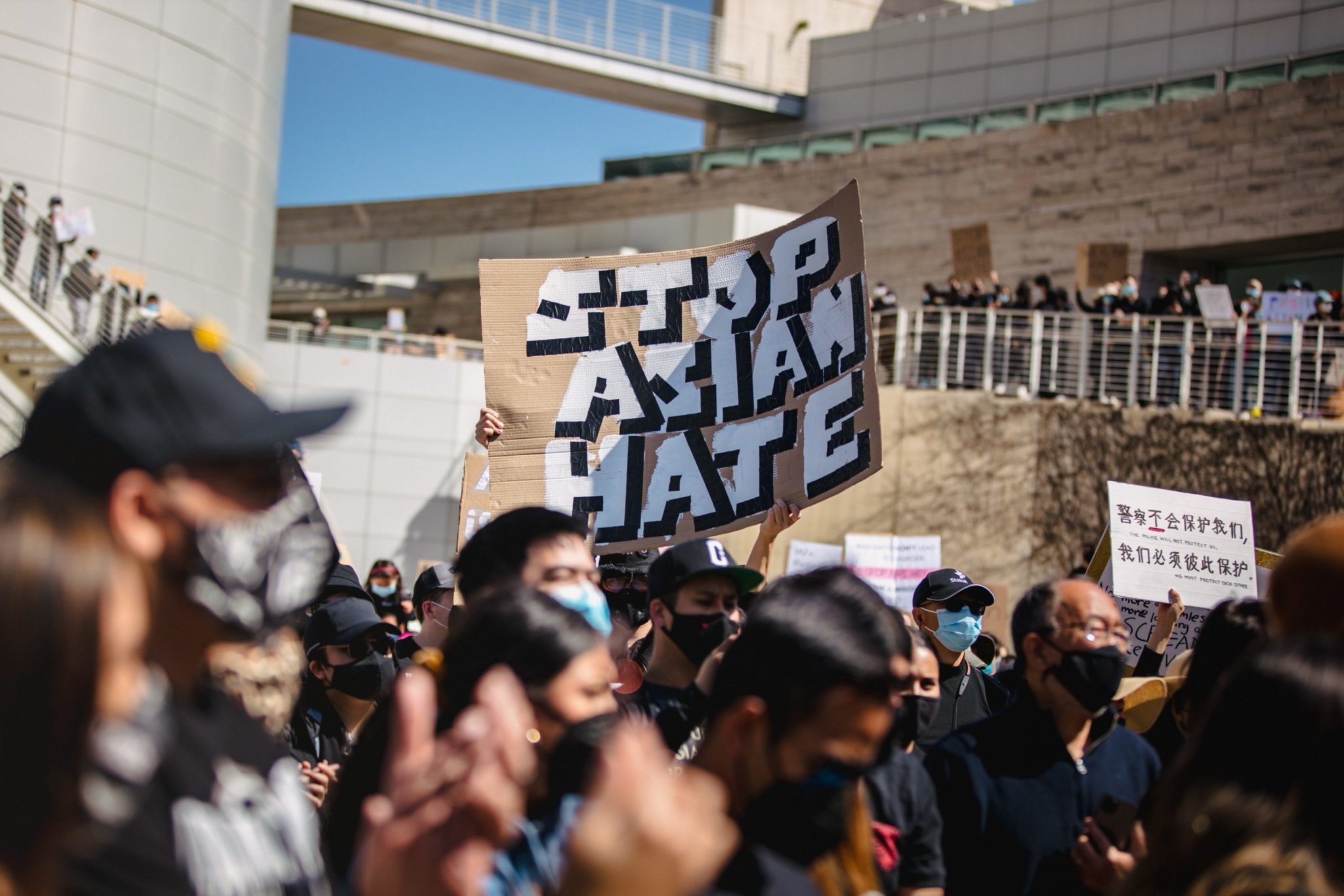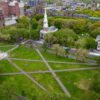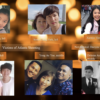
Unsplash
The past year has seen immeasurable suffering for many communities across the country. The pandemic has brought on a particularly heightened sense of fear in Asian American communities as hate crimes directed towards their members, including many elders, rose by 150 percent compared to 2019. There have now been too many tragedies to count, and many Asian Americans are reconsidering their place in American society.
In interviews with the News, nine students and four faculty members reflected on the past year and the rise of hate crimes inflicted on their communities. Sentiments varied from grief and heartbreak to fear, anger and paralysis. Surprise, however, was not among them; many interviewees emphasized that the recent tragedies are an extension of long-existing anti-Asian sentiments in this country.
“The response from like non Asian people… was to be like ‘oh my gosh I’m so shocked that this is a thing’ but anti-Asian sentiment has been the thing since Asians first immigrated to this country,” Adrian Kyle Venzon ’23, a co-president of the Filipinx student organization KASAMA told the News.
Other interviewees referenced the Chinese Exclusion Act and Japanese internment as examples of historical discrimination against Asian Americans.
Overall, members of Yale’s Asian American community expressed a renewed resolve and a continued commitment to combating anti-Asian sentiment both in and out of the classroom.
For Fan Liu, senior lector in East Asian Languages and Literatures, watching the rise of hate crimes has made her more aware of her surroundings. Though her daily life has not changed drastically, she has noticed little changes — from her daughter encouraging her to stay home to fearing for her mother’s safety to purchasing pepper spray.
“I was sad, and then I felt angry and insecure,” Liu told the News. “From these hate crimes, we can see that most of the victims are women and seniors. This is just shameless and unacceptable, and also affects almost all Asian families.”
Associate Head of Berkeley College Lely Evans echoed those sentiments.
“It’s really hard to believe that someone would do such a thing to someone that age,” Evans said of hate crimes directed towards Asian American elders. “I look at my own grandmother who’s in Taiwan, thankfully — she’s so frail and small, just why would you do such a thing?”
Like Liu and Evans, students have also noted a sense of pain and unease. Sophie Lai ’22, co-president of the Taiwanese American Society, told the News that she has felt more anxious when walking outside, even with crowds of people.
“As we can tell from recent events, anti-Asian violence can occur anywhere, at any time and to any one,” Lai said.
Though hate crimes have been occuring at high rates around the country, the Atlanta spa shootings in particular was a time of immense grief for many Yalies. Yale College Council Vice President Zoe Hsu ’24 recalled a feeling of paralysis as well as fear for her relatives and community at home in Southern California following the attacks.
“The week of the Atlanta shooting was absolutely heartbreaking,” Hsu told the News. “I remember that day so clearly — I could not go to classes that day, I could not do my homework, I could not speak to my friends. I could not explain how terrified I was about my parents, especially being on the other side of the country.”
Caleb Kim ’21, who grew up near the sites of the Atlanta shootings, also felt “crushed” by the news.
“It felt even more tangible because I recognized Gold Spa, we drove past it every week while we were headed to the grocery store,” Kim said. “It was really jarring to see such a familiar place on a headline.”
For some, these feelings of pain are amplified by a lack of institutional support.
“I have not felt supported by this institution at all during these times,” said Amy Ren ’22, a peer liaison at the Asian American Cultural Center. “People were spit on in the streets and attacked. Yale said nothing. They expected us to continue with our lives as if nothing had happened, and it felt like a slap in my face. Yale was pushing me to think about classes and meetings and work, and I didn’t have the energy to do that, and I just didn’t have the option to say no.”
Ren noted that the Atlanta shooting was not acknowledged by any of her professors, people at her workplace or the dean of her college. Yale’s statement condemning the shooting, which came several days after, felt like an afterthought, she recalled.
Jasmin Gill ’24, the vice president of the Sikhs at Yale also does not feel supported by Yale’s administration, especially after the shooting in Indianapolis at a Fedex center on April 16, in which four Sikh men and women were killed.
“I know that there are a smaller amount of Sikhs represented at Yale compared to other religions,” Gill wrote in an email to the News, “and though we are thankful to the Chaplain’s Office for their support, we still don’t have [a] Sikh person in Yale’s administration that we can directly work with.”
The feelings of pain and suffering have, in some cases, strengthened the bonds between Asian Yalies. Following the Atlanta shootings, the YCC held a community vigil with 300 community members in attendance, winning the AACC’s Program of the Year award. Hsu, who worked with other Asian student leaders to host the vigil, said that she was awed by the outpouring of “strength, power and determination” from fellow community members.
Both Ren and Venzon emphasized that relationships within the Asian American Pacific Islander community at Yale have been among the most valuable avenues for dealing with grief and pain. Ren says she and other peer liaisons have also made efforts to offer increased support for the first years they mentor.
“I’ve realized how much we need each other to support one another,” Ren said. “What has gotten me through the past couple of weeks and months is the support of my friends within the AAPI community, knowing that they understood my pain.”
As communities have come together in the wake of tragedies, conversations about racism are becoming more and more prevalent, Venzon believes. For Evans, who immigrated to the U.S. as a teenager, the increase in Asian Americans’ openness to share and discuss experiences is a departure from the past, when she says negative feelings were often suppressed.
“Growing up with my family or my friends, I never really spoke about [racism],” Evans said. But as a parent and as a teacher, I do find that it’s definitely helpful to be more direct. It’s so important to just confront it, to look it in the face and call it what it is.”
In light of the rise of hate crimes, Evans says she has initiated conversations about feeling “othered” with friends and describes a sense of “relief” in being able to talk about it.
Students are also leading more conversations about anti-Asian sentiment than ever. Several seniors, for example, used their senior thesis projects this year to explore topics of un-belonging and gaps in Asian American history. Lillian Hua ’21, another co-organizer of the AACC vigil, said that she’s found support from many students, including those outside the AAPI community.
“I’ve seen allyship not only within the Asian community but also within the BIPOC community as a whole and it’s been incredibly comforting during this time,” she said. “It’s also exactly the kind of unity we need during these times. Because in the end, we keep each other safe.”
In an email to the News, Dean of the AACC Joliana Yee emphasized the importance of both advocating for Asian American issues and fighting against racism towards all communities of color.
“Given the various forms of violence all communities of color have been experiencing, Pan-Asianism is critical to bringing together disparate groups across the Asian diaspora to build sustained dialogue and movement to heal from and address root causes of anti-Asian violence,” Yee wrote. “At the same time, it is important for unlearning our own biases and dismantling inequitable systems that exist within our own ethnic communities so we can effectively contribute towards anti-racist efforts more broadly.”
Students continue to bolster Asian American activism, both on campus and beyond. According to Resty Fufunan ’24, a first-year liaison at the AACC, many events held by the center in recent months have been inspired by the past year.
“We’ve had a lot of programming that tackles anti-Asian sentiment, looking at the history of Asian American activism and where the term ‘Asian American’ even comes from,” Fufunan said. “This helps us get to the roots of where Asian American discourse can take us now and in the future.”
The Center’s affiliated organizations are ramping up activities as well. Lai, the co-president of the Taiwanese American Society, said that her organization hosted a forum last Thursday to encourage students to engage with Taiwanese history, politics and identity.
“Given the recent circumstances, our top priority is to ensure that the Asian-American community at Yale feels supported and heard,” Lai said. “It’s so, so important right now to amplify the Asian experience in the United States. Anti-Asian violence and xenophobia is not a new phenomena, and we need to ensure that hate crimes will never go unnoticed and unaddressed.”
Asian American Students Alliance was established in 1969.
Madison Hahamy contributed reporting.









